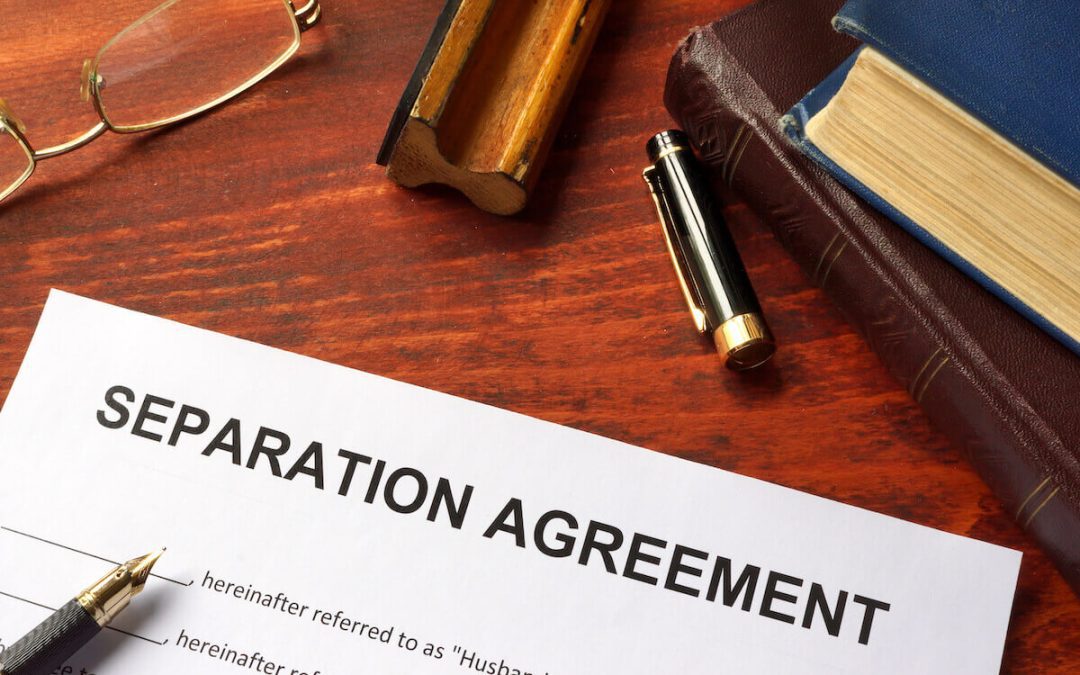It’s common for spouses to separate while a divorce is underway. Usually, choosing to do so is reasonable – but separation can also unearth a few issues regarding the distribution of property rights and financial responsibilities. In order to help make sure that you are doing everything possible to protect your rights, it is important for you to understand how these issues affect you.
In the event of separation, spouses must adhere to community property laws when dividing assets and debts between themselves. These laws are meant to make sure that the interests of both spouses are always protected.
Spouses are legally separated when they no longer live together as husband and wife following a court order. After separation, the question arises as to who will pay for the debts and liabilities incurred during the marriage. Which spouse can claim reimbursement for sums spent after separation to preserve and maintain the family residence? Is the other spouse liable for reimbursement if one spouse uses a community asset exclusively during the couple’s separation?
These matters related to the use of post-separation community assets deserve your special attention. It is vital for you to understand the two ways through which California courts resolve the claims for compensation or reimbursement made by spouses after legal separation, namely “Epstein credits” and “Watts charges.” Understanding these two rules will allow you to request these events during your divorce hearing or prepare for them beforehand.
This article will explain Epstein credits and Watts charges to help you comprehend your post-separation property rights and financial obligations.
Epstein Credits
The Marriage of Epstein case from 1979 in the state of California is where the term “Epstein Credits” first emerged. Epstein Credits were partially codified in Family Code Section 2626, which states that “The court has jurisdiction to order reimbursement in cases it deems appropriate for debts paid after separation but before trial.”
The general rule accounts for the fact that during the course of a marriage, a spouse who pays communal debts using separate assets does not have the right to be reimbursed for those payments by the other spouse. In the event that one spouse is significantly wealthier than the other and utilizes that wealth to pay off a mortgage or car loan following the couple’s separation, the less wealthy spouse is not eligible to get reimbursement for those payments.
But the Epstein Credit goes against that general rule. The Supreme Court of California states:
“[A]lthough a spouse is generally not entitled to reimbursement for separate funds utilized to meet community obligations, that rule does not apply to expenditures subsequent to separation. Accordingly, [a spouse] may claim reimbursement for sums expended after separation to preserve and maintain the family residence, unless such sums were paid to fulfill [the spouse’s] support obligations.”
What does this mean? It means the courts may issue reimbursement to one spouse for community expenses paid after separation but before trial.
After separation, a spouse can seek reimbursement if the other spouse used the separate income to pay community debts. As an example, if one spouse pays a mortgage following the separation, the other spouse may be entitled to reimbursement for a portion of the other spouse’s expenses.
Exceptions to Epstein Credits and the Reimbursement Rights
In certain circumstances, the family court may decide not to issue an order for reimbursement. These include the presence of an agreement that forbids any kind of reimbursement, the declaration that the payment was made as a gift, or the fact that the payment was made to release the paying spouse from their obligation to provide child support or spousal support.
How to Prove Epstein Credit
In order to establish Epstein credit, you will need to retain detailed records of all post-separation mortgage payments, both those that are due and those that have been paid.
You will need to be aware of all of the financial obligations that both you and your spouse had following the separation. It is important to maintain proper documents in order to avoid making things difficult when tracing payments, which is especially true in situations in which one spouse uses a joint account to make the payment. This includes debts to family members (if applicable), mortgage payments, individual utilities, credit cards, doctors, relatives, automobile loans, taxes, and more.
Watts Charges
The case called “Marriage of Watts” from 1985 is where we get the terms “Watts Credits” and “Watts Charges.” Watts charges cover the opposite scenario. When a spouse is prevented from using community property following a separation, they may be entitled to reimbursement once the divorce is final. Watts charge is an obligation to the other spouse for one-half of the reasonable value of the exclusive use of a community asset after the date of separation.
If one spouse uses a community asset, like a house or a car, without sharing it with the other, that spouse owes the other spouse “rent” for the reasonable use of that asset. If one spouse resides in the family home and the rental value is $5k per month, then the spouse who is not residing there could seek a “Watson charge” of $2.5k per month for each month that the other spouse resides there without them.
Exceptions to Watts Charges
Watts charges are general rules that are apt to change under special circumstances and exclusions. The presence of any agreement that negates Watts charges, the declaration of payments as gifts, or the use of the fair rental value while determining support are examples of these exclusions.
Final Thoughts
If you have questions about how Epstein credits and Watts charges may affect your divorce, it’s recommended that you get in contact with a financial expert for a case evaluation.
We are here to help. The Certified Public Accountants (CPAs) at Miod and Company are here to help and can assist you in navigating the complexities of property rights and financial responsibilities after the separation. Schedule a free consultation to find out how we can help.
